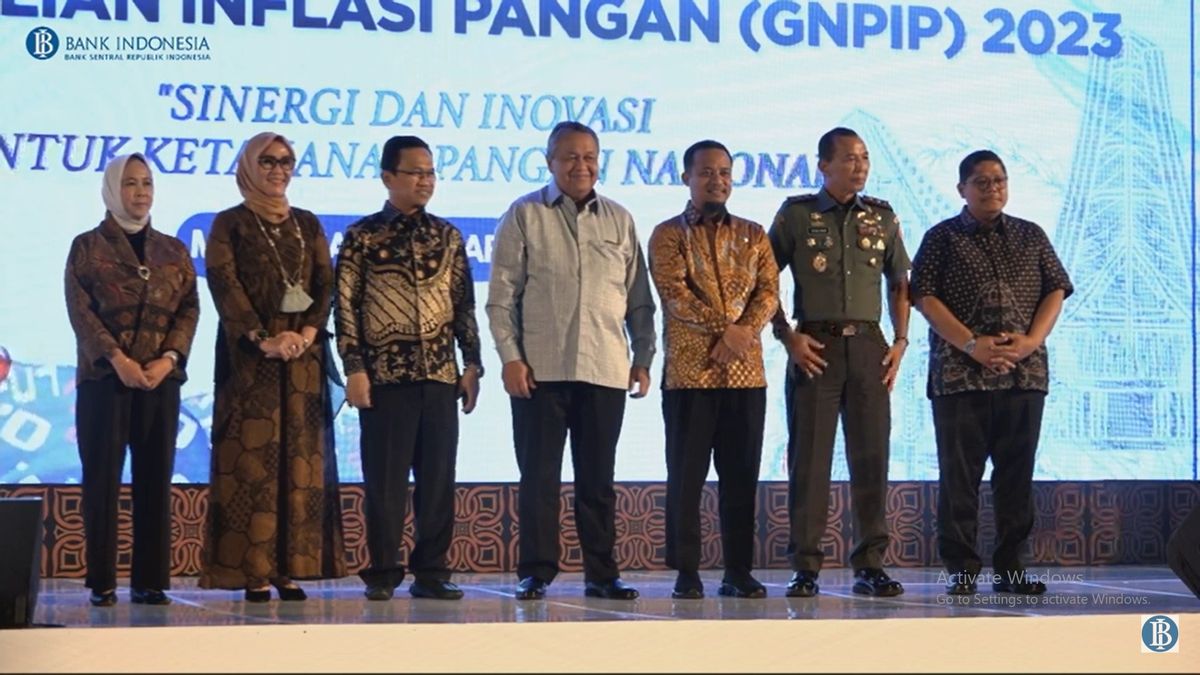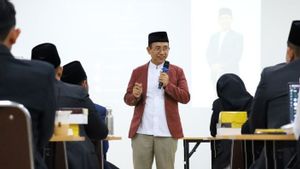JAKARTA Bank Indonesia (BI) today officially started the Kick Off of the 2023 National Food Inflation Control Movement (GNPIP) nationally in Makassar, South Sulawesi. BI Governor Perry Warjiyo said this step is concrete evidence of the cooperation of the Central and Regional Inflation Control Team (TPIP/TPID).
"This inflation control program optimizes the role of all elements in playing a role in maintaining inflation, especially supply continuity, and regulating distribution chain efficiency," he said through online channels on Sunday, March 5.
According to Perry, the launch of the GNPIP is increasingly strategic because it was released ahead of the Ramadan period, which is believed to have increased inflation due to increased demand from the public.
"Let's strengthen synergy and innovation for price stability and national food security," he said.
Perry explained that the 2023 GNPIP was focused on seven main frameworks, namely optimizing market operations, strengthening the security of strategic food commodities, increasing the use of production facilities, strengthening cooperation between regions.
Then, facilitate distribution between regions, improve digital infrastructure and food data, as well as strengthen coordination and communication of various related parties.
"This GNPIP is quite successful, as in 2022 it has succeeded in reducing food inflation (volatile food) from the previous 11.4 percent (year on year/yoy) in July 2022 to 5.6 percent in December 2022," he said.
Previously, Perry also had said that Indonesia was considered successful in controlling general inflation (consumer price index / IHK) with a relatively low achievement of 5.51 percent in 2022. This realization is more gentle than BI's prediction of 6.5 percent with the influence of rising fuel prices.
"Inflation is down faster and lower than the previous reading," he said.
Meanwhile, Bank Indonesia and the government are targeting inflation levels to drop to 3 percent plus minus 1 percent starting in the second semester of 2023.
The English, Chinese, Japanese, Arabic, and French versions are automatically generated by the AI. So there may still be inaccuracies in translating, please always see Indonesian as our main language. (system supported by DigitalSiber.id)












